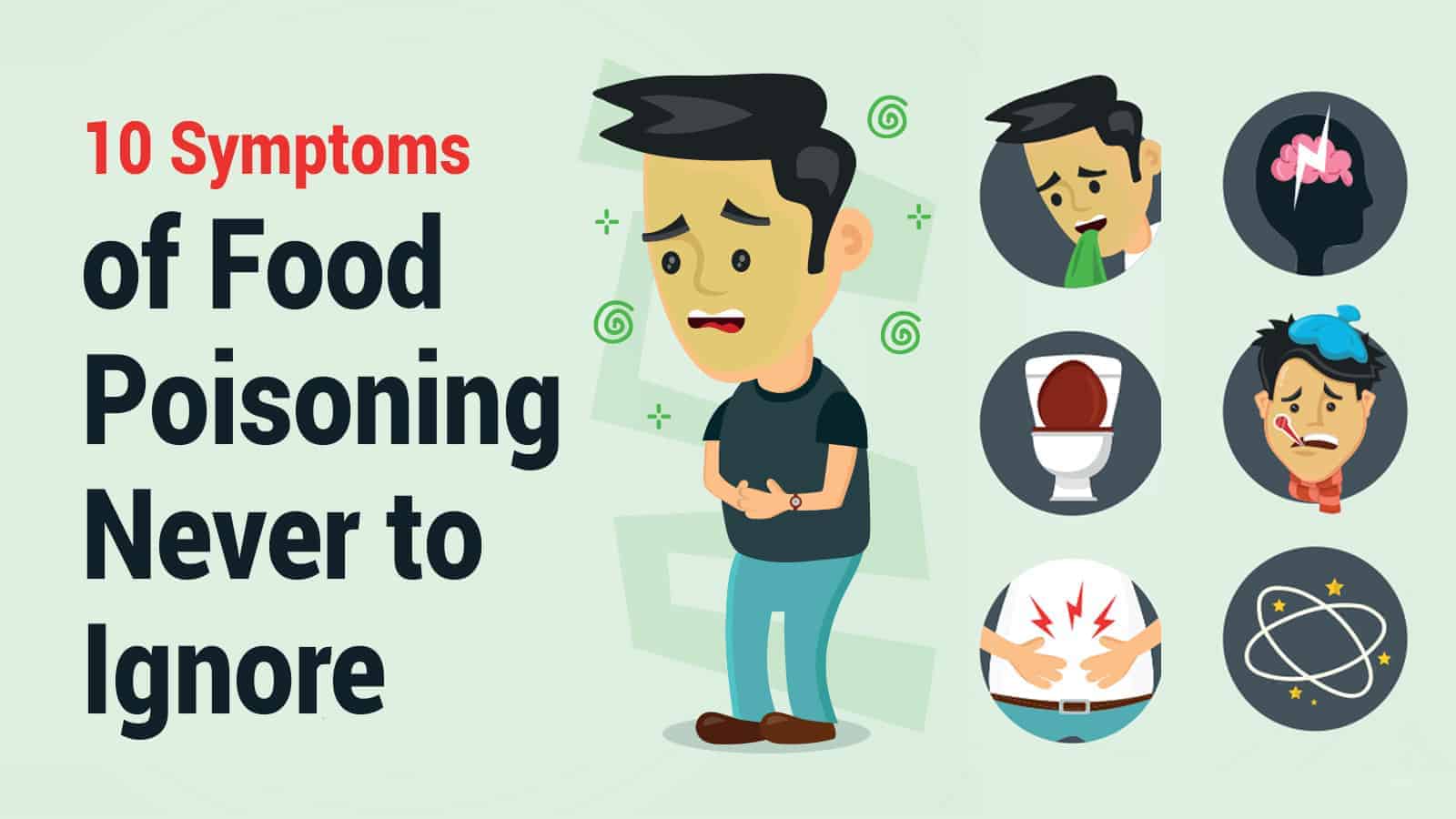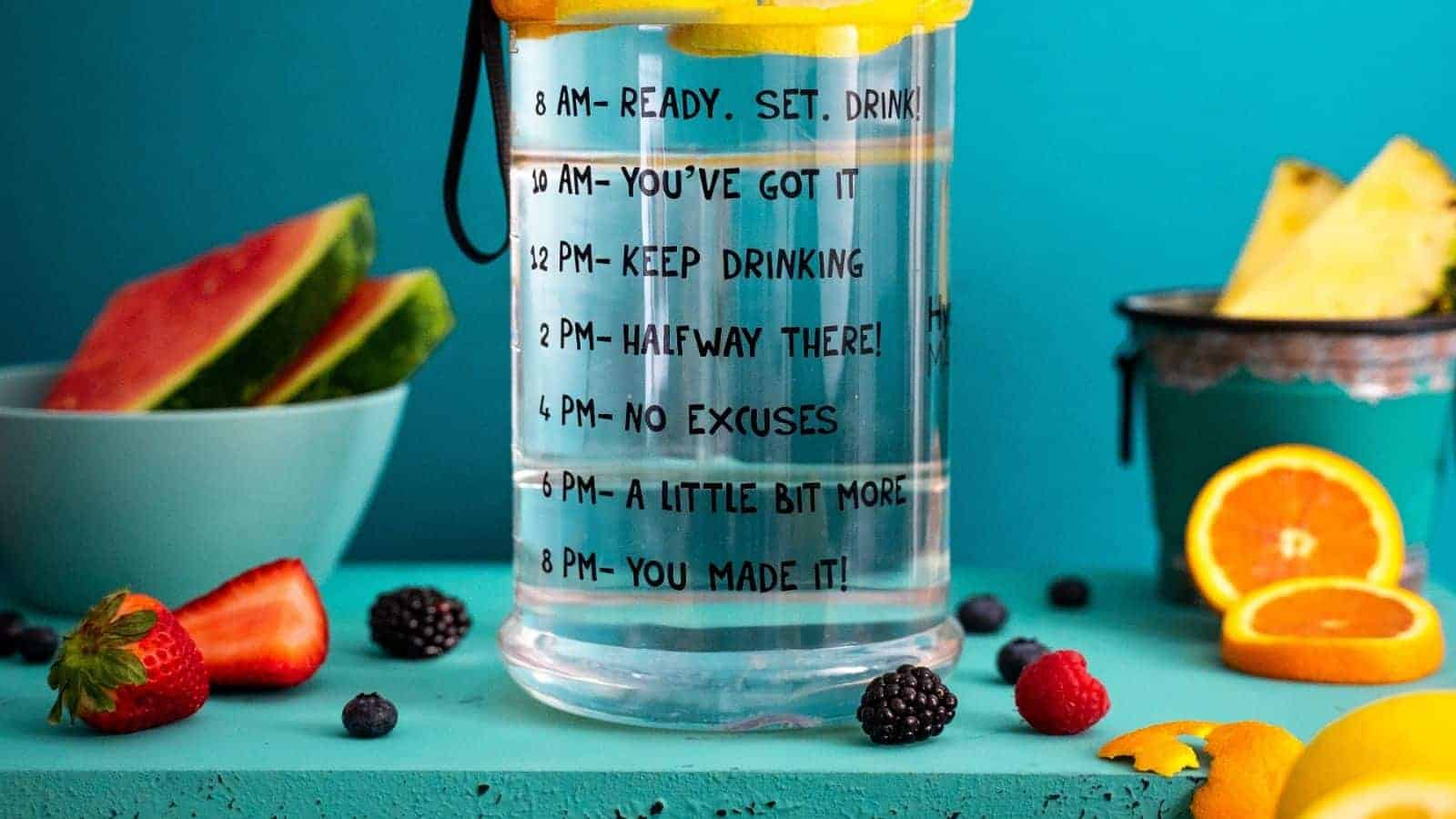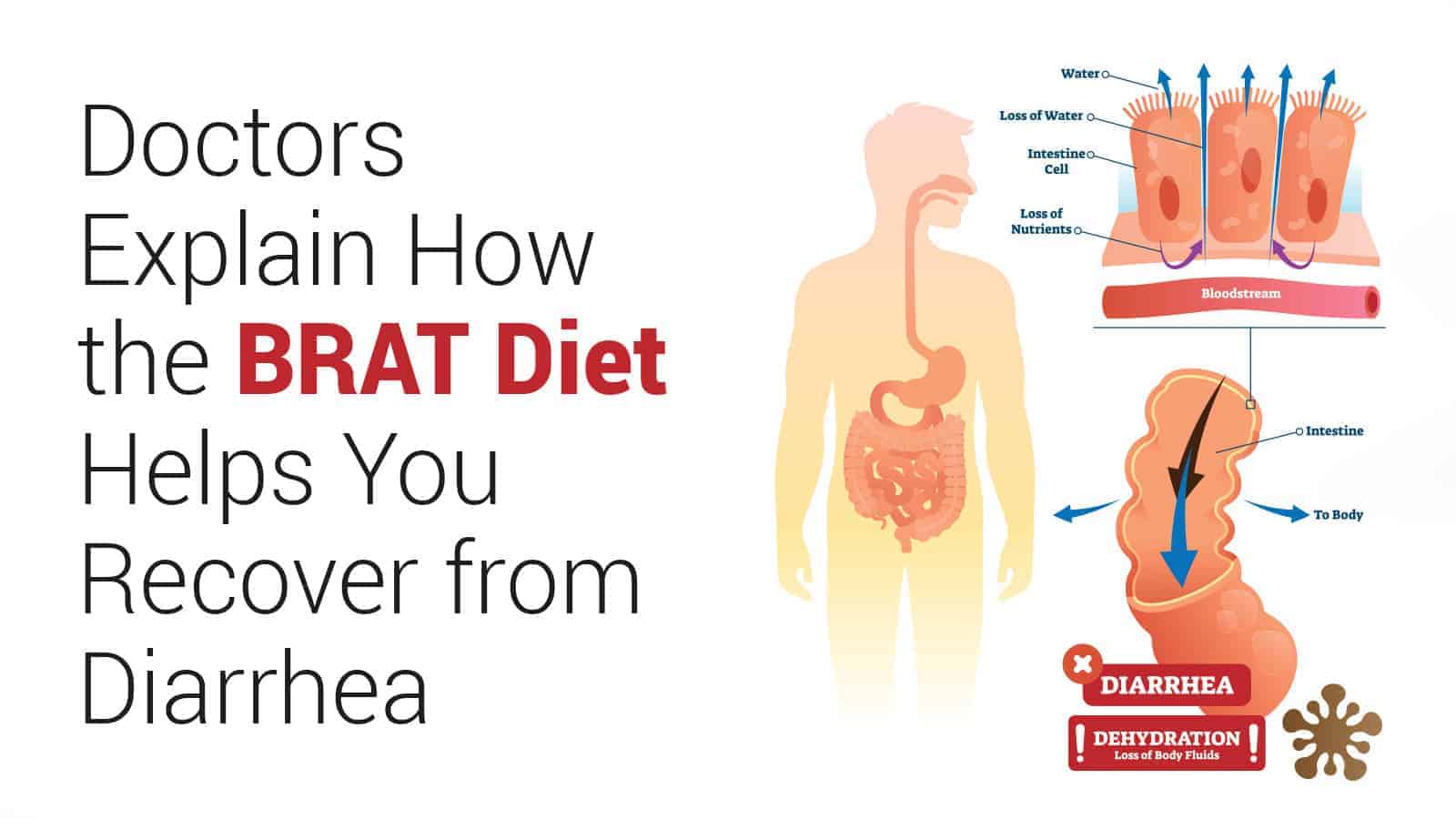If you have ever had to cope with food poisoning, then you know the unpleasantness of the experience. Fortunately, food poisoning usually passes after a few days. But there are some dangerous symptoms of food poisoning never to overlook. If you have these symptoms, you should reach out to your doctor immediately. Here’s the list of the ten symptoms of food poisoning you should never ignore.
What is food poisoning?
Food poisoning stems from eating contaminated food. The most common causes of food poisoning are bacteria, parasites, or viruses. You’ll show signs of food poisoning anywhere from two to six hours after eating contained food, depending upon the type of bacteria that’s was in it. Typical symptoms of food poisoning include the following:
- Nausea
- Vomiting
- Diarrhea
- Stomach cramps
- Headache
What is the most common cause of food poisoning?
There is a long list of bacteria and viruses that cause food poisoning, but here are the most common types that cause food poisoning.
- coli: This bacteria can be found on undercooked meats or raw veggies and fruits. It’s especially dangerous for children to get sick from E. coli.
- Listeria: This type of bacteria shows up on deli meats and soft cheeses.
- Norovirus: This virus spreads quickly. You can get it from a minuscule participle of an infected person’s poop or vomit. You can also get it from being close to someone who has norovirus.
- Salmonella: This bacteria is the most common reason for hospitalizations and deaths due to food poisoning. It’s found on raw eggs, undercooked meats.
- Staph infections: These infections can be transferred from an infected person’s hands touching food.
- Clostridium perfringens: This bacteria can thrive on raw meats or poultry.
- Trichinella spiralis: This worm enters the body through raw meat, especially pork. If you don’t cook the meat properly, you will get infected by the worm.
Dangerous symptoms of food poisoning never to ignore
Note: These symptoms should set off an alarm in your head–call your doctor for advise, especially if symptoms persist for more than two days. If you have underlying health problems, do not delay in calling your physician for advice.
-
Bloody stools
It’s good to get this checked out since you could be having internal bleeding and not know it. It’s not untypical to have a bloody stool when you have food poisoning, but having them too long or too often is a bad sign.
-
High fever
If you have a fever of 102 degrees, Fahrenheit call your doctor right away. The fever combined with fluid loss can mean you need immediate attention to prevent severe consequences.
-
Frequent vomiting
Throwing up is one of the classic symptoms of food poisoning. If you’re vomiting too much too often, you can get dehydrated. Take a break from drinking when you first start vomiting. After an hour of not vomiting, try some ice chips to see if you can keep those down. At this point, you can sip a little soft sports drink because these have extra electrolytes in them. Be careful not to gulp down your beverage, or you could end up back at the toilet. Keep eating ice chips and sipping a sports drink to get hydrated. You can also drink hot tea or seltzer water.
-
Dehydration
If you’re not urinating or if you have a parched mouth or feel dizzy when you stand up, it could mean you’re dehydrated. As soon as you stop vomiting, you should begin to build up your fluids. If you can’t keep fluids down for too many hours, you should contact your doctor. You might need to head to the hospital to get an IV to get rehydrated. Some people are prone to dehydration, so if you’re one of them, you need to be even more careful if you get food poisoning. There are several hydrating drinks and powders on the market that are good to keep on hand in case of stomach problems. These hydrate you faster than standard sports drinks or other liquids.
-
Diarrhea that lasts more than three days
Similar to constant vomiting, if you have diarrhea for too many days, you’ll get dehydrated and weak. It’s essential to be proactive if you do have diarrhea for more than three days, contact your doctor. They can write you a prescription to stop your diarrhea and allow your body a break.
-
Difficulty breathing or heart palpitations
This is uncommon with food poisoning, but it does happen. Food poisoning is hard on your body, especially your heart, if you’re older. Difficulty breathing or heart palpitations can occur when your body is under stress. Don’t delay. Contact your physician right away or visit the emergency room if you have these symptoms.
-
Can’t urinate
This is a sign you are dehydrated. Don’t ignore this. Push fluids, and if this persists, contact your doctor right away.
-
Confusion
Confusion is rare, but if you or someone you’re caring for has food poisoning and gets confused or disoriented, it means they are dehydrated. Push fluids, such as sports drinks, right away. Contact your doctor if the confusion persists.
-
Dizziness
Like confusion, lack of urinating, dizziness could be a sign of dehydration. But sometimes you feel weak after vomiting and having diarrhea. Stay in bed at least 24 hours to allow your body to rest. Drink lots of fluids and if you feel hungry, eat some food. Follow the BRAT diet if you want. It can help you get started on eating foods again.
- B-bananas
- R-rice
- A-apple sauce
- T-toast
At one time, doctors recommended everyone eat the BRAT diet after being ill, but now they feel like you can eat other foods if they’re bland enough. So, use common sense and don’t overdo overeating heavy or spicy food, or you could end up getting sick again.
-
Vision changes
Again, vision changes when you have food poisoning are rare but can happen, especially if you have heart problems. Don’t wait for this to go away. Contact your doctor right away to get help.
Can there be long term health issues from food poisoning?
Food poisoning usually lasts a few days at the most, but some people end up in the hospital with long-term problems and even death. Some food infections cause long-term issues such as the following:
- Arthritis: Studies found that there have been Salmonella outbreaks that have caused long term arthritis afterward.
- Brain damage: Some bacteria or viruses potentially can cause brain infections called meningitis.
- Kidney failure: Your kidneys go through a lot when you get food poisoning. Getting dehydrated is serious because it can result in kidney damage or kidney failure.
What foods commonly cause food poisoning?
There are some particular foods you should be wary of, especially in the summer months when it’s hot outside and food can spoil easier.
-
Turkey, chicken, and other meats
Undercooked meats or meats that you’ve left out too long can grow bacteria and make you sick. Raw chicken, undercooked turkey are big culprits. If you’re cooking meat, cook it thoroughly. Use a meat thermometer to guarantee you’ve cooked the meat properly. Wash your hands with soap and hot water after handling raw meat of any kind. Never touch your mouth, face, nose, or eyes when you’re handling meat.
-
Fruits and vegetables
Lots of hands touched the produce you buy at the grocery—everyone from the pickers and packers to those who put out the produce at the grocery store. Your product harbors lots of germs, even if it’s organically grown. Fresh fruits and veggies harbor bacteria and viruses, so be exceptionally throughout when you wash your produce. Rinse your veggies and fruits under running cold water. You can soak them in cold water if you want. Rub the outside of the produce and pull off out leaves of leafy greens. Don’t use dish soap or bleach, since these can leave a residue on your produce.
-
Raw milk, raw soft cheeses
Soft cheeses like feta, brie, blue cheese, Camembert, or queso fresco can carry bacteria or viruses. Also, ice cream and yogurt. Buy reputable brands of these products to ensure say handling. But sometimes, an outbreak can’t be prevented, so if you hear of a recall on foods, follow the guidelines right away.
-
Raw eggs
Be careful about eating raw eggs. You are placing yourself at elevated risk for a round of salmonella poisoning.
-
Seafood
Be sure to wash seafood thoroughly and cook it. If you eat raw seafood, buy it only from reliable dealers who you trust will handle it correctly.
-
Sprouts
Sprouts sit in water in a warm place, which is the perfect place for fungus bacteria to grow. Wash your sprouts well and pat them dry before you use them to rinse away anything harmful.
How to treat food poisoning
If you do get food poisoning, you need to be vigilant about replenishing your body with fluids to avoid dehydration. Replace your fluids after you’ve not vomited for at least an hour. Then begin sipping liquids. Try food after several hours if you feel hungry.
Those at risk
Older adults or people that are immune-compromised should take special precautions if they get food poisoning. They will need to keep special hydrating fluids on hand. There are several over-the-counter products you can buy to help you get hydrated.
Homemade rehydration solution
You can make your own rehydration solution for yourself or your children. Here’s the simple recipe
- 4 cups of Gatorade (Gatorade G2 is best because it contains high levels of the needed electrolytes)
- 1/2 to 3/4 teaspoon of plain table salt
- Chill, stir and drink completely.
Final Thoughts on Knowing the Symptoms Food Poisoning
Food poisoning isn’t fun. Try as you may to wash your produce, cook meats thoroughly, and wash your hands often when handling raw meat, sometimes you still get a food-borne illness. Fortunately, food poisoning doesn’t last that long. Stay hydrated and rest up for at least 24 hours, and pretty soon you’ll be back to normal.
However, if symptoms of food poisoning do not improve in a day or two, seek the guidance of your primary care physician. They can advise you of the next steps, or if you need professional treatment.
















 Community
Community

